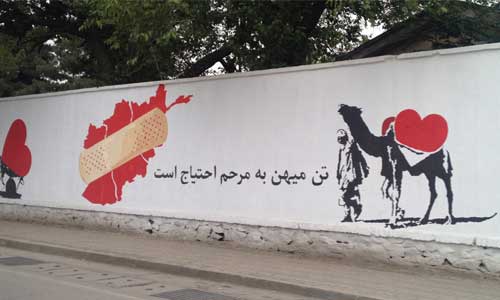In recent days, two important events have happened in relation to Afghan peace process which considered as a new beginning for the peace process. As a first event, the government and Taliban agreed on basic principles of peace negotiation which paves the way for the two sides to enter in a new phase of the negotiation process. As a second event, the first meeting of the Supreme National Reconciliation Council of Afghanistan was held after long delay and internal disagreements. Previously, the two top leaders did not agree over the list of committee members but it has resolved over few days after intimation of foreign countries. Given the coincidence of two important events, are we getting closer to peace in the country? Is the inauguration of Supreme National Reconciliation Council with the beginning of the second phase of the talks in Doha, a new promising step for the people of Afghanistan?
In response to these questions, there are different views and analysis amidst Afghan political community but generally they can be classified into three categories: optimism, pessimism and moderate. The optimist thinkers believe that the two mentioned events are good steps towards peace process. They say the leadership committee of the Supreme National Reconciliation Council comprised of top political leaders, national figures, and government officials and their agreement and consensus can break any deadlocks in the country. They also hope crossing from the first phase of negotiation is step forward towards peace in the country. In addition, the regional and international demand or relative consensus about peace process has created a unique opportunity for peace in the country.
Unlike the above category of thinkers, the pessimist analysts think that the issues of Afghanistan have far deeper root inside and outside the country to be resolved this easy. For example, Rahmatullah Nabill said in a detailed interview with Tolonews about High peace Council that the traditional leaders who were destroyers of the country, in many cases, now cannot be the builders of the country as members of the council. He emphasized that no one should monopolize everything in the country. He added that the young generation of Afghanistan who are the main victims of the war is not included in the High Council for National reconciliation. He also expressed concerns that many of the major decisions are made behind the intelligence table and there is no particular definition of peace and war in the country. There is also criticism about excluding several national figures such as Rahmatullah Nabil, Seyed Ishaq Gilani, Farkhondeh Zahra Naderi, Hikmatyar and Shahzadeh Shahid which shows lack of national consensus about peace in the country. In general, the pessimist politicians and political analysts think such meetings are not more than a play show and so the criticism has recently increased against the president.
As pointed out, there are also moderate types of politicians whose views are combined of hopes and concerns. Although they are concerned about national disintegration, lack of definition about peace and war, lack of national strategy for resolving big issues and lack of entering a deep dialogue with Pakistan, they never deny new opportunities in Afghanistan. They think talks with Taliban have become easier than before because the Taliban has lost its political supporters after Trump lost election in United States. The Taliban has also lost the war logic or legitimacy in the country. Before they justified the killing of Afghans and Afghan civilians with conception of Jehad and defending the land against foreign aggression but after signing peace deal with US they stopped war against foreigners while intensified war against Afghan people and civilians. This issue has largely divulged the real face of Taliban in the country and also in Muslim world level. As a result, the social bases of Taliban has been weakened inside the country and so an unprecedented consensus created among Islamic countries illegalizing Taliban war in Afghanistan. Therefore, the Taliban has lost its ideological sword in ongoing war in Afghanistan.
In general, many of people are unsure about peace in the country. They are concerned about lack of comprehensive plan by of Afghan leaders. They think peace is not possible unless proceed from a strong united position. In fact, the root problems of Afghanistan start from the same points; we have just a weak and defensive position against enemy of peace and prosperity. There is almost a century that we have weak position against regional aggressors but strong position in internal level. Now, this is the time to make reverse! In fact, most often the peace will not come without war and punishment of war factors. If they cannot stop a-one-century interferences in Afghanistan, we can also renew a hundred year security pack with the US and other international allies to give unforgettable lessons to the aggressors. If our neighbors cannot see the endless tears of Afghan widows, orphans and civilian victims, why we should not take a similar position against them?
In the other word, our pace is rooted in our national power while our national power originates from our national unity. The regional countries have been seeking their strategic depth or interests in our country because we are weak and disunited? Therefore, it is highly important for the new generation of Afghanistan to get awaken of these issues. Neither should we tolerate any threats to anyone and nor impose any threats to others; if they do not understand this simple and friendly policy, there is no way other than confront them from strong position. Because the history has shown that peace and tranquility is NOT the product of begging and cowardice, but the product of defense and braveness!
Home » Opinion » Are we getting closer to Peace in Afghanistan?
Are we getting closer to Peace in Afghanistan?
| Mohammad Zahir Akbari

